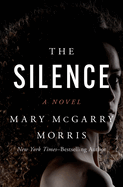
One character is completely out of control in Mary McGarry Morris's thriller The Silence. As someone puts it, "I'm being harassed, tormented, stalked by a crazy person. A madwoman." Those may be villainous qualities, but the "madwoman" is actually a police officer, and the closest thing Morris's consuming novel has to a hero.
Ruth Corrigan, who grew up in Craigville, Mass., has never gotten over the death of her best friend, Ceely Pardeau, when they were eight. Ceely was found murdered in the woods where she and Ruth had been playing until Ruth left her there alone. Ruth suspects that the killer was the town priest, Father Phil, who she knew was molesting Ceely and whom the girls saw by the woods the day Ceely died. In the present, Ruth is a Craigville cop with an alcohol problem. On the night she learns that Father Phil has moved back to town, a sozzled Ruth is in a hit-and-run in a police cruiser. She decides to spend her suspension researching Ceely's murder.
The novel's perspective roves, but this is Ruth's story, and she gets a fantastic workup from Morris, who gives her speech patterns that reflect a fragmenting mind ("Can't seem to concentrate. Racing thoughts and pounding heart"). The ending of The Silence verges on melodrama, but Morris (Songs in Ordinary Time) delivers something richer than a typical procedural by teasing moral questions: Is lying for the common good okay? And must one always prize the common good over personal happiness? --Nell Beram, author and freelance writer

